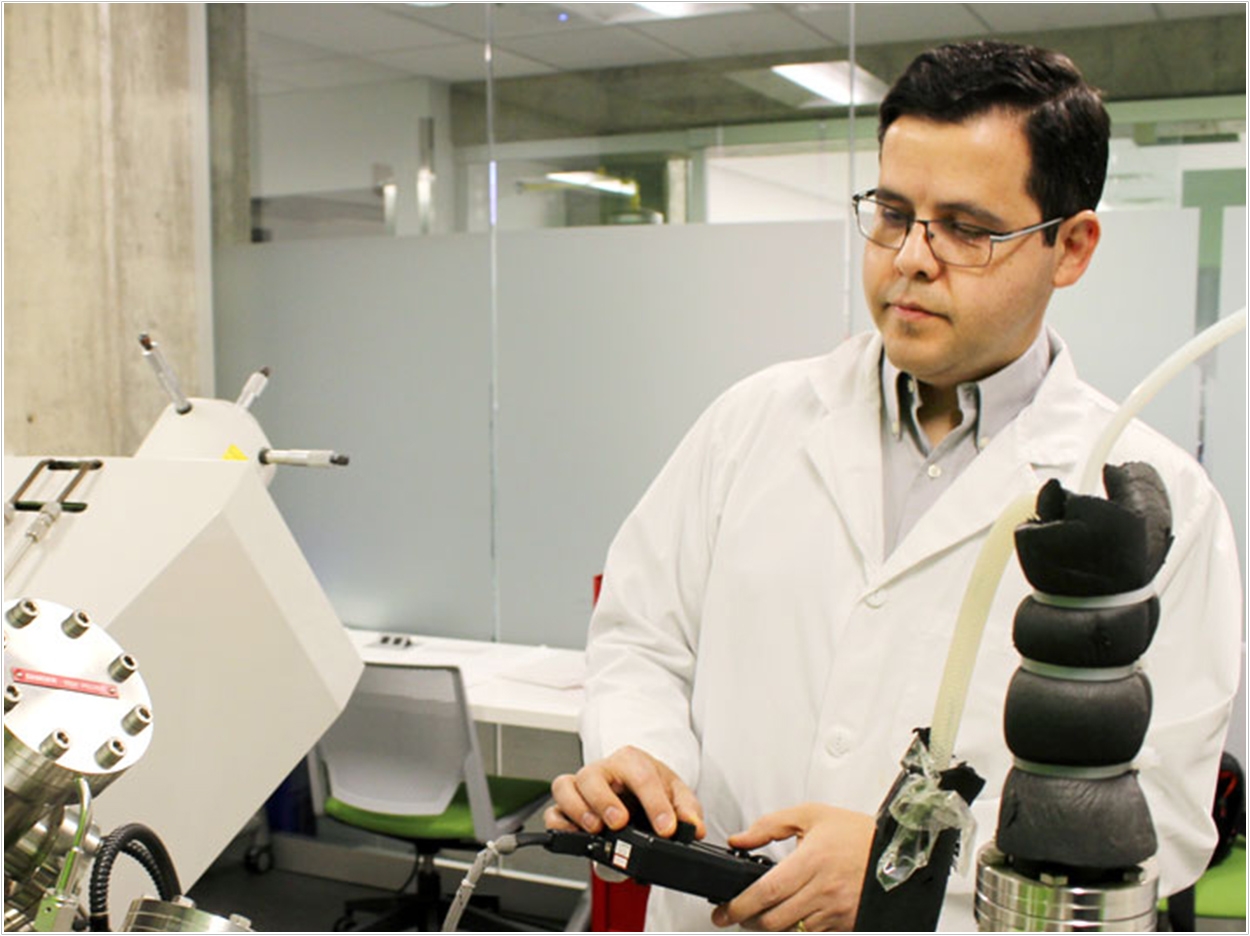
Rodrigo França, DDS, MSc, PhD, of the University of Manitoba Dr. Gerald Niznick College of Dentistry is developing nanoparticles that could be injected into teeth during routine dental visits to protect them from tooth decay.
“What I’m trying to do is a game-changer,” said França, who supervised a study that showed how superparamagnetic iron oxide nanoparticles (SPIONs) can fully penetrate human molars when subjected to an external magnetic field.
These tiny particles could be used to carry drugs and then be magnetically guided inside teeth. França hopes to see this treatment become reality in the next five years.
As part of his research, França analyzes the atomic composition of nanoparticles using an X-ray photoelectron spectroscopy machine at the Manitoba Institute for Materials on the Fort Garry campus.
“It would be wonderful if we could provide a technique to prevent cavities before they start,” he said. “The first results are very promising.”
França has developed, tested, and compared products used in dentistry such as alloys, ceramics, cements, resins, and adhesives. In one study, he compared seven types of conventional dental implants with experimental implants created through 3-D printing.
He also has investigated the effects of one material upon another, such as how at-home and in-office teeth whitening products affect dental cements and composites. He views materials as the driving force of oral care improvement.
“Everything that changes in dentistry changes because we have new materials,” he said. “We never invent a technique and say, ‘Oh, what material are we going to use here?’ No. It’s the opposite.”
França completed his dentistry degree at the University of Itaúna and was a general dentist before getting his master’s and PhD in dental materials from the University of Sao Paulo. He then obtained a second PhD in biomedical engineering at Polytechnique Montréal.
“I’m half-dentist and half-engineer,” said França. “I learned how to do research with engineers, and I know what dentists need.”
França also supervises graduate student research about nanoparticles as well as dentistry students who are looking at ways to improve dental restorations such as fillings and crowns. He hopes to invent a way to adhere a tooth to a restoration that lasts as long as 20 years.
Related Articles
Nanoparticles Penetrate Teeth to Deliver Drugs
Antibacterial Nanoparticles Improve Adhesive Resins
Nanoparticles Break Up Plaque and Prevent Tooth Decay



